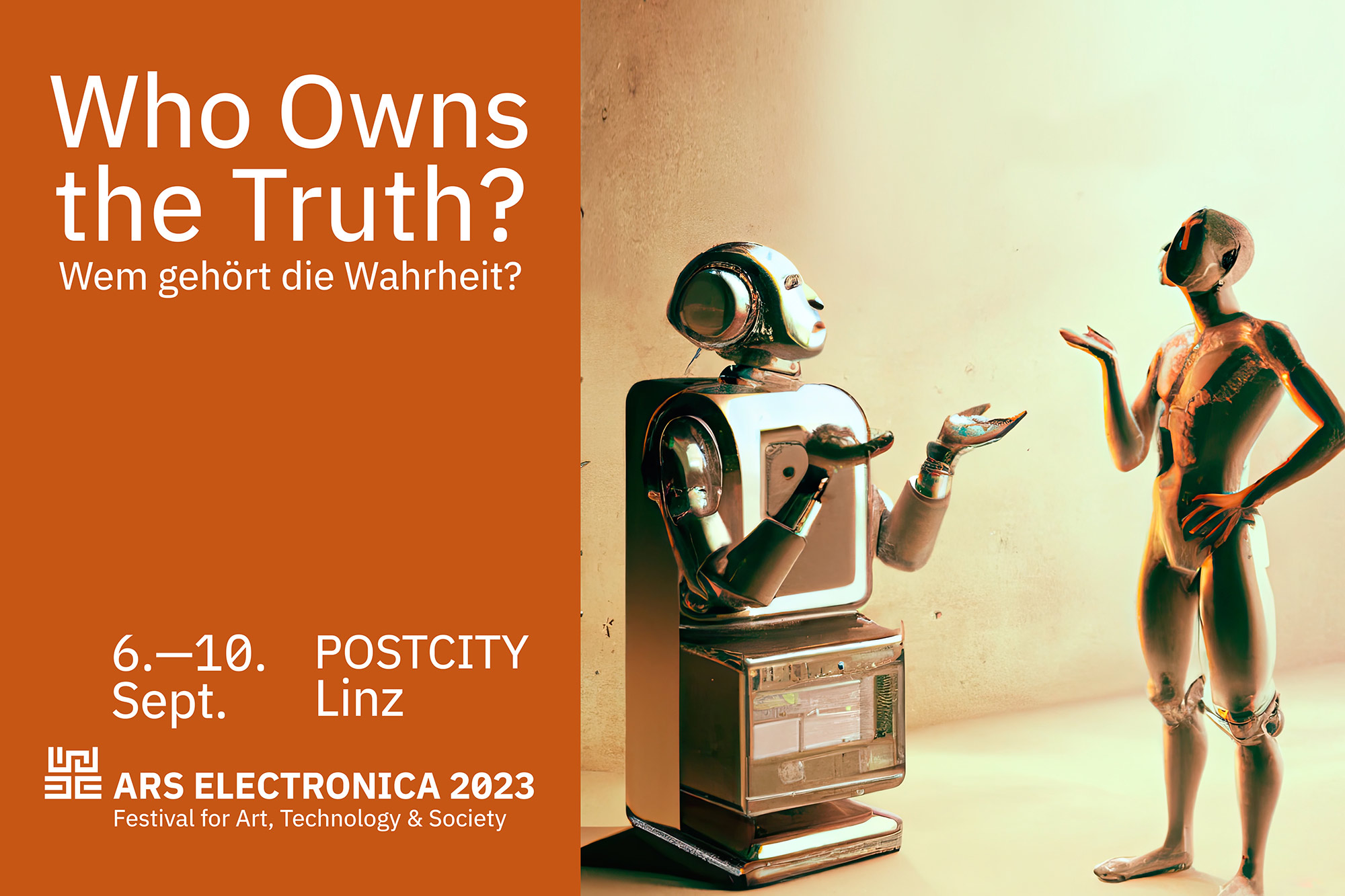When the Ars Electronica festival (September 6 – 10) took a deep dive into examining what “truth” means in today’s world, organizers invited broad participation from CCC and Cortico.
This included:
• a keynote by CCC director Deb Roy
• two workshops, (one on large language models and another on technology-enhanced citizens’ assembly), and
• an exhibit, in collaboration with Cortico, which gives festival participants an opportunity to experience elements of a novel, AI-supported social dialogue network.
Cortico will also be introducing Fora, a new platform for trustworthy civic discourse. Learn more about the collaboration between CCC and Cortico here.
Deb Roy Keynote
Seeing the alarming rate at which today’s media and social media technologies are contributing to destructive behaviors and social fragmentation that are weakening our social fabric and threatening democracies worldwide, Deb Roy shares his thoughts about the potential for new models for digital networks that combine advances in generative AI with the power of human listening and conversation. The goal: to create new scalable spaces for trustworthy and constructive public to help reverse the frightening trends that are promoting disinformation and toxic polarization.
Workshops
Large Language Models (LLMs) and Us
Led by CCC graduate student Belén Saldías, Research Scientist Jad Kabbara, and Professor Deb Roy
This two-part workshop gives participants the opportunity to explore and challenge the capabilities of Large Language Models (LLMs). The first session addresses such questions as: What can LLMs do and how can they mislead us? How would you tell an AI to behave like you do? How would you probe the AI’s values to see if its values sync with yours?
The second session provided a “behind-the scenes” look into data production and the curation process, providing an end-to-end view of the flow from generation, provenance, control, influence, privacy, and ownership. Drawing from CCC’s current research, this session will show one way we use LLMs to bring people together in constructive ways.
Imagining a Tech-Enhanced Citizens’ Assembly Towards a More Inclusive and Constructive Democratic Process
Led by Dimitra Dimitrakopoulou, CCC’s Head of Translational Research, Claudia Chwalisz, founder and CEO of DemocracyNext, and Professor Deb Roy
Using the model of Citizens’ Assemblies, this session explores how we might harness the power of technology to reimagine democratic spaces where people can listen to one another, find common ground, better understand the complexity of public policy and decision making, and as a result, revive their trust in institutions.
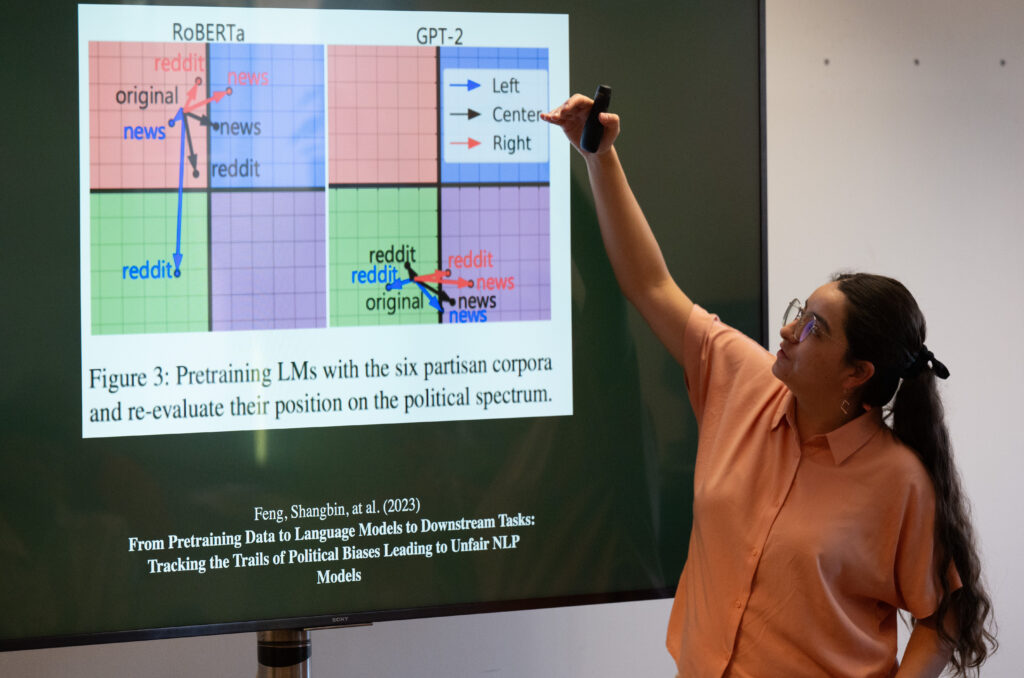
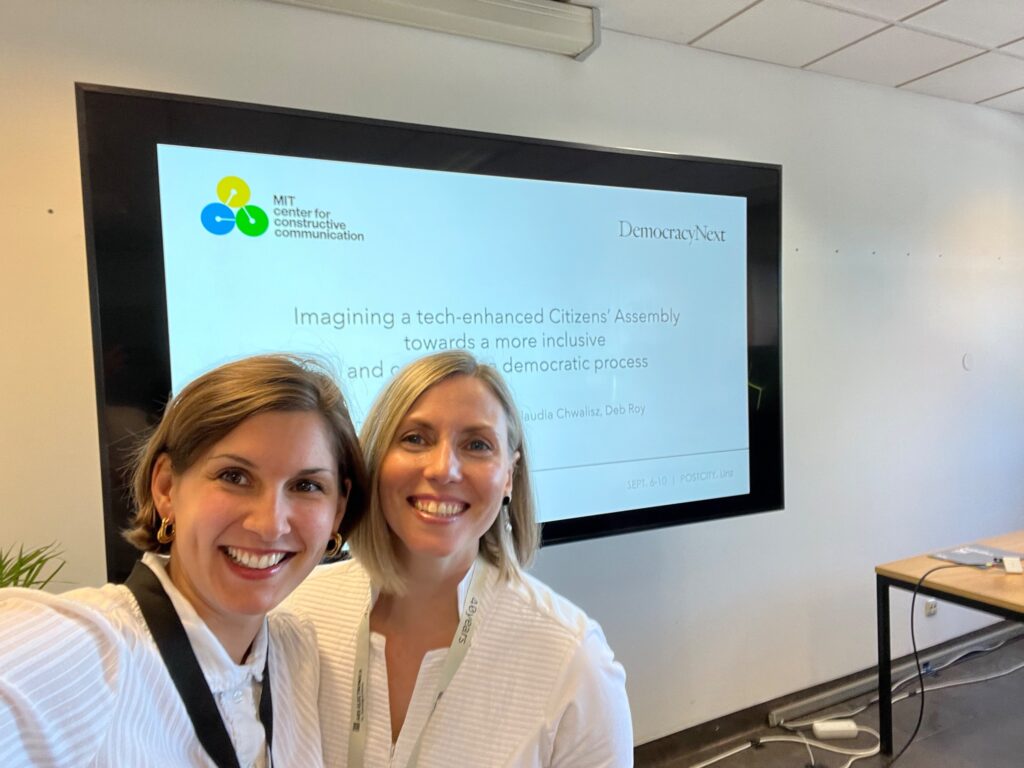
CCC and Cortico Exhibit
Collective Echos
An exploration of a human-AI system for constructive human dialogue and listening
In the face of intensifying social fragmentation and collapse of a shared reality, we look to ancient wisdoms such as small-group dialogue and sensemaking to inform the design of a novel, AI-supported social communication space where communities can gather for facilitated, constructive conversation. In these spaces, individuals are also equipped with visualizations and machine learning-backed insights to help them “make sense” of their collective experience. This system, which combines cutting edge AI sense-making technology with the ancient art of human conversation seeks to nurture agency and trust in civic life and, ultimately, bolster values core to a functioning democracy.
The exhibit invites visitors to listen and explore the breadth of our library by engaging with people’s stories and viewing accompanying visualizations. This network of stories makes space for complex, empathetic interactions that we hope inspire visitors to participate in this intimate system firsthand.
Credit: CCC graduate students Maggie Hughes, Naana Obeng-Marnu, Cassie Lee, Spencer Russell, MIT Professor and CCC director Deb Roy, and collaborators from non-profit collaborator Cortico.
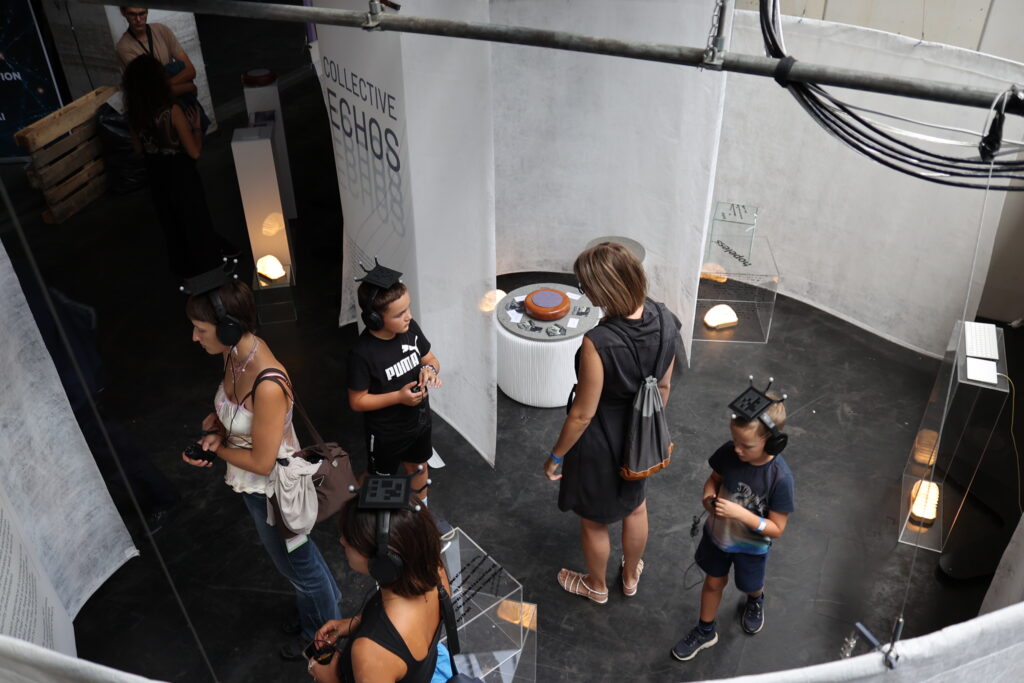
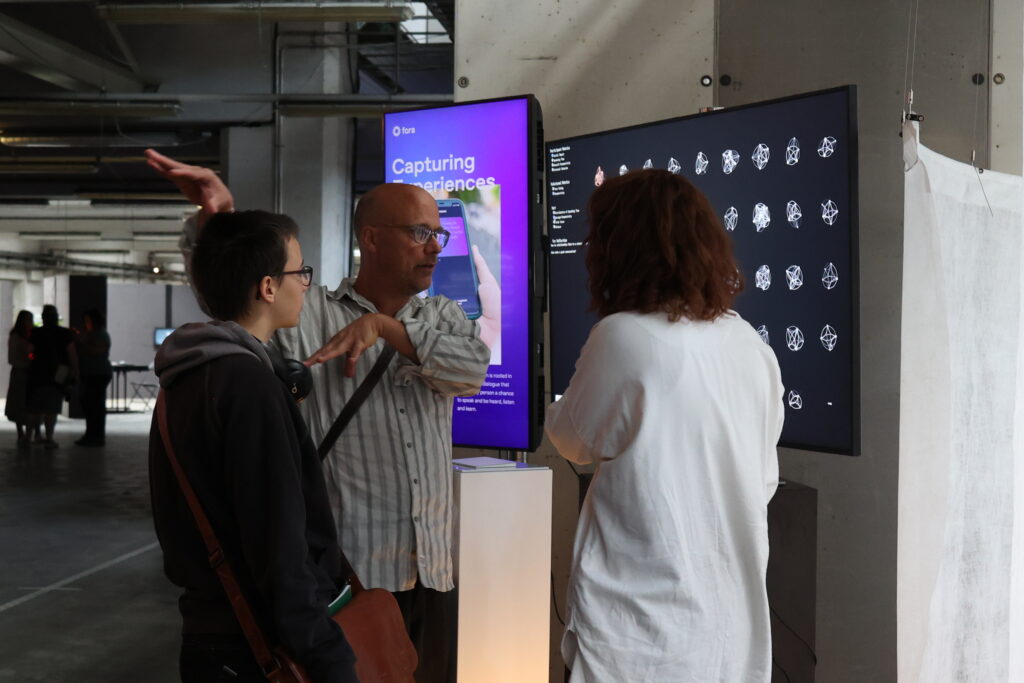
About Ars Electronica
Every year Ars Electronica, a cultural, educational, and scientific institute based in Linz, Austria, invites artists, scientists, developers, designers, entrepreneurs, and activists from all over the world to participate in a festival that explores the interrelationship between art, technology and society. It also manages a multidisciplinary media arts R&D facility known as the Futurelab, and confers the Prix Ars Electronica awards.
